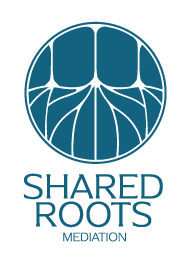What is restorative and transformative justice?
Both the terms restorative justice and transformative justice can have many different meanings and different relationships to each other depending on who is being asked. At Shared Roots, we use these terms to encompass both a philosophy and a social justice movement, rooted in indigenous practices and focused on how we, as a society, should address harm and wrongdoing. In using these terms, we wish to emphasize our connections to each other while acknowledging that, because we are all human beings, we can cause hurt and be hurt. This hurt creates obligations not only to repair these harms caused by the misconduct but also to restore relationships, community, and social equity.
The idea of justice as the restoration of right relationships and conflict transformation - ideals of social equity - sits at the center of our definitions of restorative and transformative justice. We at Shared Roots Mediation see this as a process of bringing together those persons who have caused harm, those who have experienced it and been affected by it, and their communities to create a plan of repair for this specific harm, focused on the harmed person and their needs and healing. But we also seek to go beyond one particular conflict to name, define, and educate harm-doers and the community at large on the larger societal injustices that lead to specific harms, as part of our commitment to transformative justice. Through our philosophies of restorative and transformative justice held together, we seek to create social change in individual relationships and communities and society as a whole.

